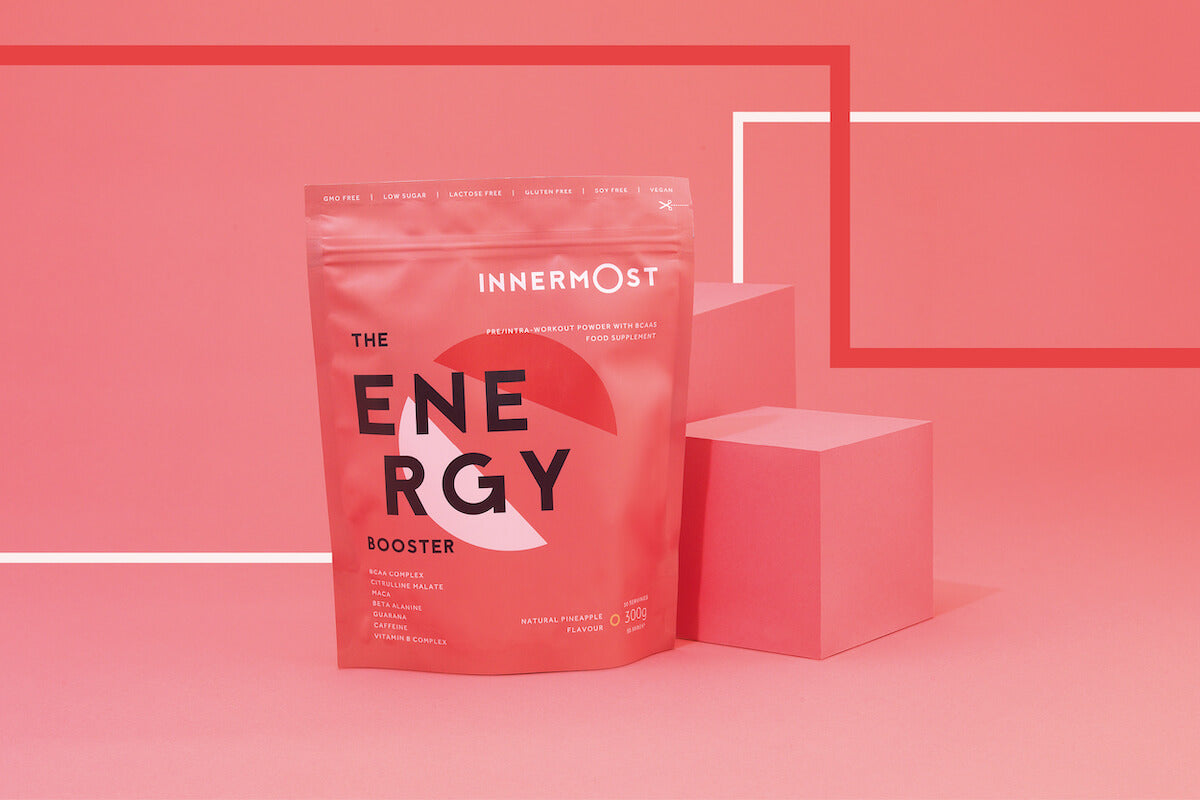Looking for that all-important pre-workout energy? BCAAs are probably about to become your best friends,
BCAAs are an extremely popular supplement – any readers that are frequent gym-goers may well be familiar with these already. If you’re not, not to worry – we’re about to give you the 4-1-1, so you’ll be ready to implement these amino acids into your diet and begin reaping the benefits in no time.
BCAAs, or Branched Chain Amino Acids, are a group of three essential amino acids that are responsible for a number of bodily functions and are a great assistant to maximising your ultimate workout potential. Whilst these three amino acids are essential, they are not naturally occurring, which means our body does not produce these for us. As a result, it’s important that we gain these through external sources.
What are BCAAs, and what do BCAAs do?
The three amino acids that make up the group of BCAAs are:
- Leucine
Leucine is responsible for multiple processes in the body including protein creation, energy production and assisting in the smooth running of your metabolism.
- Isoleucine
Isoleucine has a great influence in our psychological functioning and is vital in assisting the immune system and regulating hormones in the body.
- Valine
A key-player in energy production, Valine stimulates muscle growth and maintenance.
What are the benefits of BCAAs?
- Maintaining Muscle
Unfortunately, when many embark on their endeavour to lose weight, they are faced with a bit of a catch-twenty-two, as they end up losing a lot of their muscle mass, too.
Branched Chain Amino Acid supplementation is a great way to combat this, as these amino acids provide users with the ability to maintain their muscle match - even when you’re in a calorie deficit! This is because in addition to aiding protein synthesis (aka, the process of protein creation), one of the main benefits of BCAAs is that they also reduce the rate of protein break downs, and therefore, reduce the rate of muscle loss.
Amazing!
- Promotion of Muscle Mass
Another fantastic benefit of BCAAs is that BCAA supplementation – specifically Leucine, is a great stimulus for protein synthesis, which in turn leads to the promotion of muscle mass. Research has even shown a direct correlation between BCAA supplementation and an increase in muscle mass, particularly in patients with liver deficiencies – suggesting that not only is this supplement a great way to improve your workout and performance, but one that has positive, life-altering effects.
- Prevents Liver Disease
Similar to the above, it has also been discovered that BCAA ingestion can play a major part in the prevention of liver disease.
- Enhanced Recovery
This includes the prevention of muscle wasting and a decrease in muscle soreness, making BCAA supplements particularly popular. With a reduction in recovery time and reduced symptoms of exertion, you’re able to get back in the gym or on the track faster, and limit your risk of injury.
- Assists Your Immune System
Research has shown that amino acids have a great influence on our immune system as a result of their pivotal role in our body’s cell functioning.
Which foods are rich in BCAAs?
Great news – lots of foods that will fit in easily with a range of diets, whether you’re a meat eater, a vegan or have a certain intolerance. We’ve rounded up a few food products below, but generally, foods high in BCAAs are protein rich.
- Meats
Meats such as beef, chicken and turkey all contain BCAAs, so good news for all the meat-lovers out there.
- Protein Supplements
Whey Protein and Soy Proteins regularly contain BCAAs – and this is likely where you will have heard of these essential amino acids before.
- Fish
Tuna and Salmon are great examples, and with them bring a host of other benefits such as their high Omega-3 content, and vitamins such as D and B2.
- Dairy
As well as being a great source of calcium, dairy ingredients such as eggs, greek yoghurt and parmesan cheese contain levels of BCAAs.
Summary
So, are BCAAs worth it? We think the answer is pretty clear.
It’s not hard to see why BCAAs are some of the most popular supplements in the game when you consider their wealth of benefits. Typically, products rich in BCAA contain a 2:1:1 ratio of the three BCAAs: Leucine: Isoleucine: Valine.
If you’re not sure where to look when it comes to BCAA supplements, The Energy Booster contains these amino acids and comes in a delicious, fresh pineapple flavour. This is ideal to take as a pre-workout solution for those of you that exercise regularly, or even as a daily energy-booster if you’re just looking to put an extra spring in your step.
References
Uojima, H., Sakurai, S., Hidaka, H., Kinbara, T., Sung, J. H., Ichita, C., ... & Kobayashi, S. (2017). Effect of branched-chain amino acid supplements on muscle strength and muscle mass in patients with liver cirrhosis. European journal of gastroenterology & hepatology, 29(12), 1402-1407. Click here.
Protein Synthesis - An Overview | ScienceDirect Topics. (2021). Retrieved 20 April 2021. Click here.
Holecek, M. (2010). Three targets of branched-chain amino acid supplementation in the treatment of liver disease. Nutrition, 26(5), 482-490. Click here.
Wilson, R. P. (2003). Amino acids and proteins. In Fish nutrition (pp. 143-179). Academic press. Click here.



















